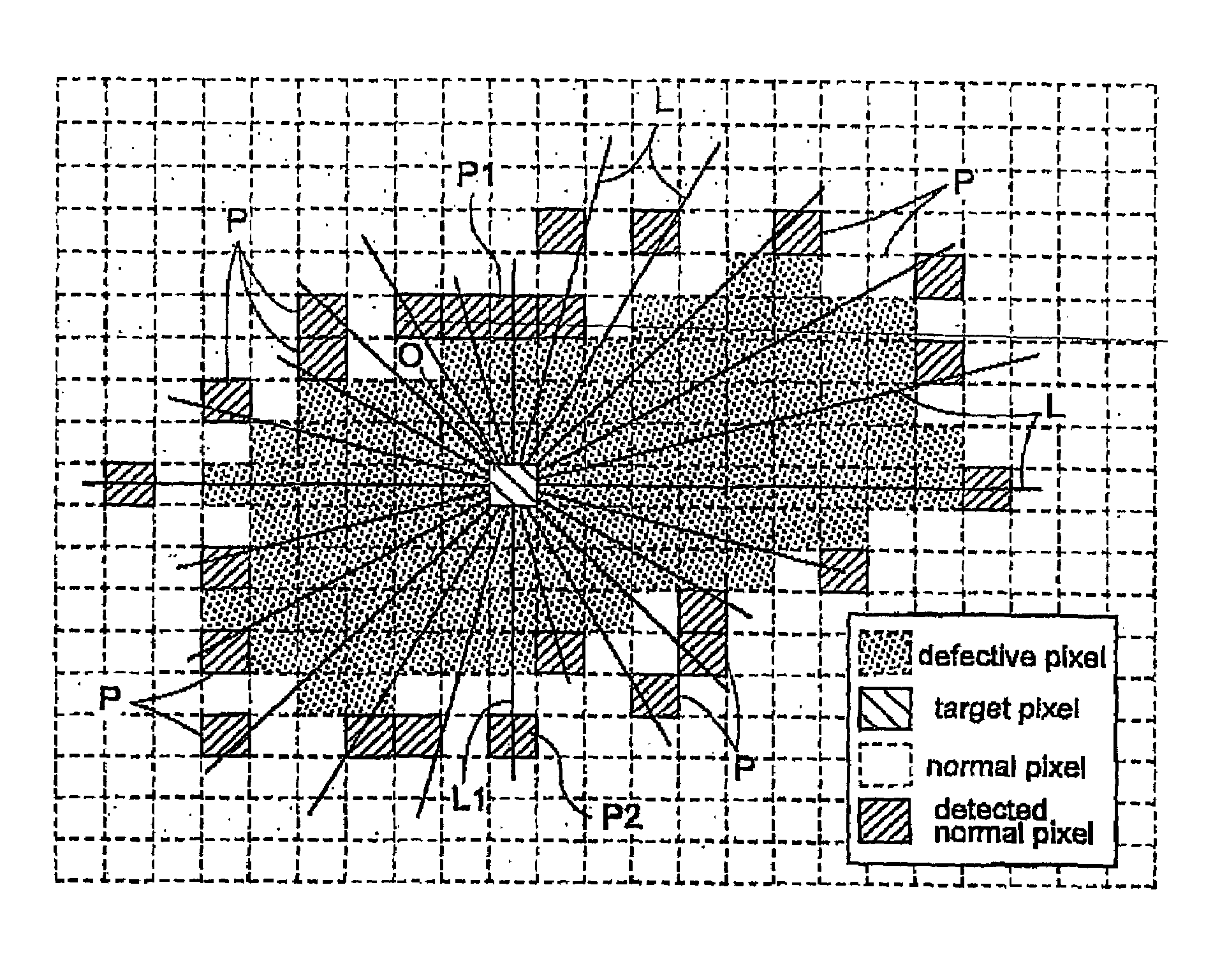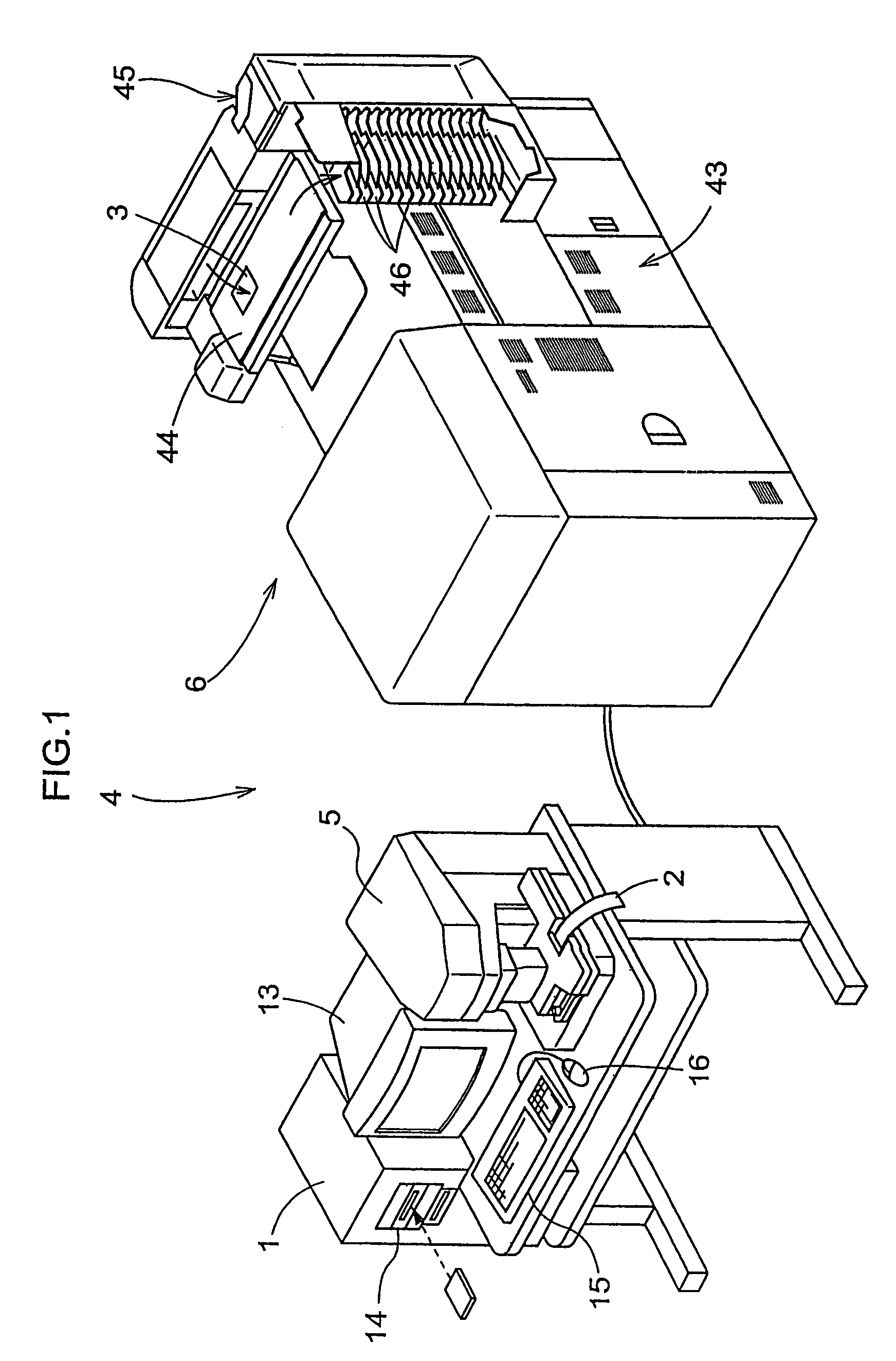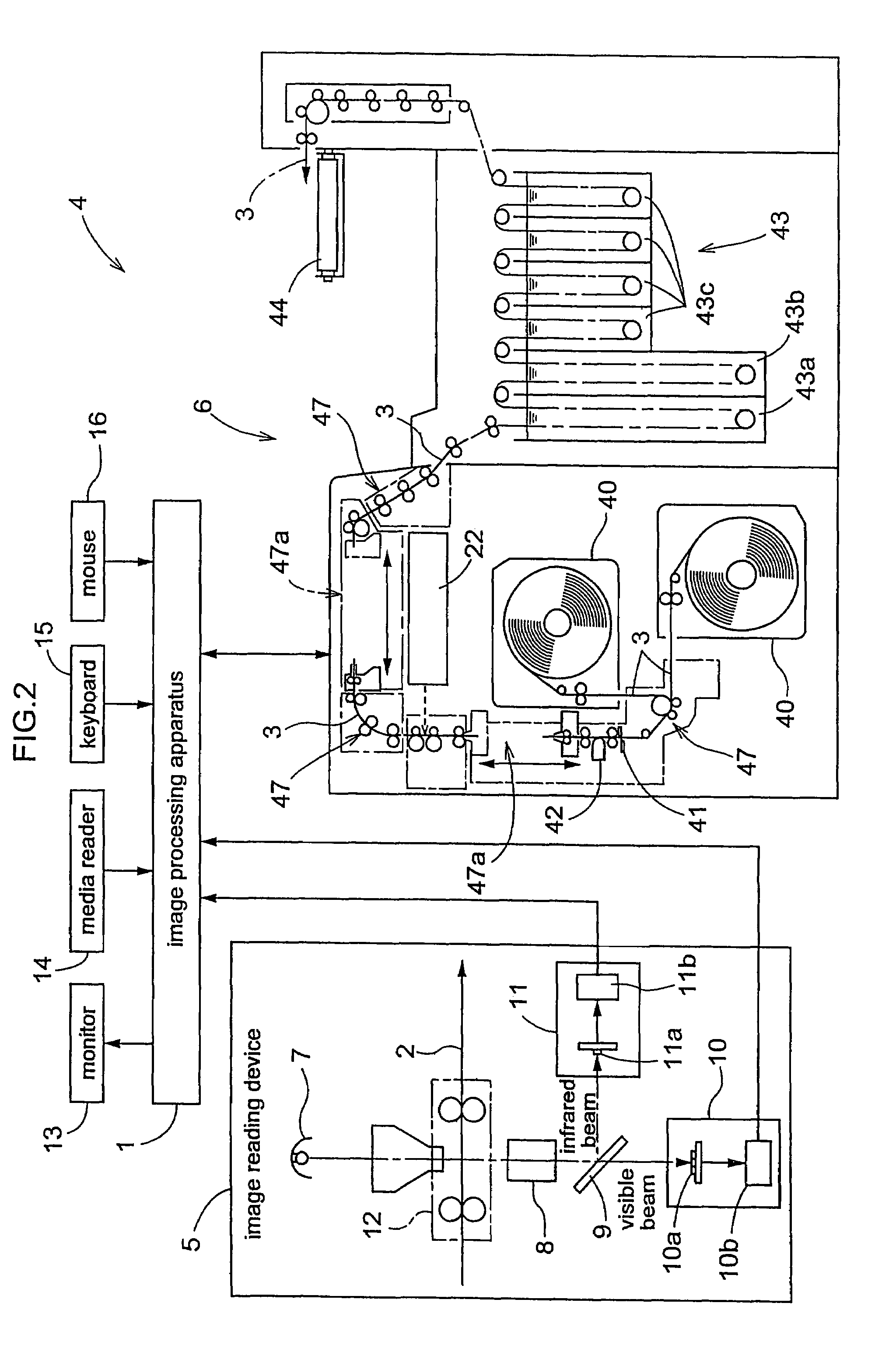Image processing apparatus and image processing method for correcting image data
a technology of image data and processing apparatus, applied in the field of image processing apparatus and image processing method for correcting image data, can solve the problems of inability to correct this defect appropriately, conventional interpolation correction technique, and inability to correct the defective portion properly, so as to reduce the amount of calculation needed, increase processing speed, and correct the defective portion
- Summary
- Abstract
- Description
- Claims
- Application Information
AI Technical Summary
Benefits of technology
Problems solved by technology
Method used
Image
Examples
Embodiment Construction
[0046]Next, with reference to the accompanying drawings, there will be described an embodiment of the present invention wherein an image processing apparatus 1 relating to the present invention is employed in an image printing system 4 adapted for reading an image from a photographic film 2 and then recording this read film image on a print paper 3. FIG. 1 is a perspective view showing the appearance of the image printing system 4. FIG. 2 is a diagram showing a schematic construction of the image printing system 4. FIG. 3 is a block diagram showing the various functional units of the image processing apparatus 1.
[0047]As shown in these figures, this image printing system 4 includes an image reading device 5 for reading a photographically recorded image in each frame of the photographic film 2 developed by an unillustrated film developing device as digital image data, the image processing apparatus 1 configured for generating print data by effecting an image processing operation on t...
PUM
 Login to View More
Login to View More Abstract
Description
Claims
Application Information
 Login to View More
Login to View More - R&D
- Intellectual Property
- Life Sciences
- Materials
- Tech Scout
- Unparalleled Data Quality
- Higher Quality Content
- 60% Fewer Hallucinations
Browse by: Latest US Patents, China's latest patents, Technical Efficacy Thesaurus, Application Domain, Technology Topic, Popular Technical Reports.
© 2025 PatSnap. All rights reserved.Legal|Privacy policy|Modern Slavery Act Transparency Statement|Sitemap|About US| Contact US: help@patsnap.com



